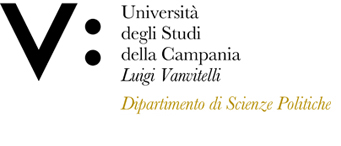The Doctorate in Legal and Social Sciences for Innovation has a strong interdisciplinary, multidisciplinary and transdisciplinary vocation and is in continuity with the most relevant and innovative lines of research of the Department of Political Science, in which it is incardinated, as well as in coherence with the University Strategic Plan. This methodological approach, combined with a strong vocation for internationalization, provides doctoral students with the most modern and up-to-date tools, in terms of knowledge and skills, for the analysis and interpretation of the phenomena under investigation, also allowing them to carry out original research activities, formulate hypotheses and applicative projects sharing the results in adherence to the principles of Open Science. Particular attention is dedicated, in the legal field, to the themes of innovation, the relationship between person and institutions, the theory of sources and interpretation of civil and administrative relations and the circulation of legal models, business innovation and technological innovation in the regulation of financial markets. With regard to innovation in public administration, the research focuses on forms of management that enable the PA to reach the standards of effectiveness and efficiency that characterize other European countries with particular regard to the different forms of digital citizenship, the digitization of processes, procedures and the life cycle of public contracts and the realization, also in digital forms, of services to citizens.
Specific emphasis is also given to the close relationship between the protection and enhancement of cultural heritage and the impulse of tourism, declined and interpreted as an existential experience that involves not only the discovery of places but the full knowledge of socio-cultural realities also through the most modern digital technologies. In the field of economics, comparative analysis of economic systems related to innovation, institutions and economic development are investigated; financialization and corporate governance in order to the impact of Fintech and new forms of asset management; the new frontier of sustainable development for companies in order to design and measurement. In the field of political science, issues related to the languages of politics are investigated, between social science philosophy, communication and political symbolism; political institutions between crisis and innovation; the future of democracy between public ethics and critical theory of society; and the symbolic-political hermeneutics of the work of art. In the field of sociology, topics related to the sociological study of innovation and reflections on collective conducts; new frontiers of social control with specific regard to conflict and deviance are examined.
The course is divided into two curricula, indicated below, both of which focus on the theme of innovation and the declinations it takes on the fields of research related to the different areas:
1. Administration, markets and public policy;
2. Person, society and culture.
The Ph.D. course has a duration of 3 years, the first one characterized by a common training path and the following ones marked by a "specialization" of training and research culminating in the elaboration of the final thesis. The teaching, also delivered in English, consists of lectures, seminars, laboratory and research activities, interdisciplinary, multidisciplinary and transdisciplinary in nature, specifically designed and organized, possibly also in online mode.








